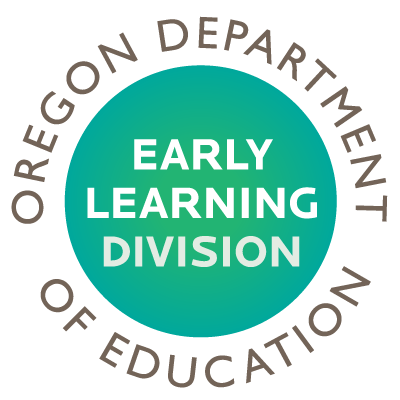News
Majority of Families in Oregon Experienced Child Care Disruptions Due to COVID-19
(Salem, Ore) – Results of new research commissioned by the Early Learning Division (ELD) and conducted by Portland State University and OSLC Developments, Inc. illustrate the critical importance of accessible child care for Oregon families during the COVID-19 pandemic. The reports document the widespread disruptions to child care experienced by Oregon families in the last year.
“Throughout this pandemic, we have worked to ensure emergency child care is available for families, especially for frontline workers. The research highlights the increased uncertainty the pandemic created for families of young children, particularly families of color,” said Oregon Early Learning System Director Miriam Calderon. “Families made clear how important child care is — not only to remain in the workforce, but also to support their children’s healthy development and learning. This is important data that must guide our efforts to strengthen Oregon’s child care system going forward.”
In an online survey, conducted during the fall of 2020, most families (59.6%) reported that COVID-19 disrupted their children’s care arrangements. The rate of disrupted child care was even higher among Black families (73.8%) and Asian families (67.5%). The most common reason for disruptions among all families was that the child care provider was not providing on-site care or had closed. Child care has been closed throughout the state since March 2020, but approved Emergency Child Care facilities have been in operation with modified health and safety requirements in place, including reduced group sizes.
The research also showed families relied on a “patchwork” of family, friends, and neighbors to provide child care during the pandemic. Parents and caregivers who participated in listening sessions shared changes in family income, loss of employment, and increased child care costs created additional barriers to finding affordable, high-quality child care.
The findings showed families were worried about their children’s loss of learning opportunities and social interactions. During the listening sessions, parents and caregivers said they were concerned virtual opportunities were lower quality compared to in-person experiences, and may impact children’s early academic skills, social and emotional learning, and readiness for kindergarten.
Families’ main concern about returning to in-person child care outside of their own homes was increased exposure to COVID-19, with 82% reporting this concern. The research also found families of color reported higher rates of concern about COVID-19 exposure than the rate of concern across all families. This may be related to the higher rates of COVID-19 cases, hospitalizations, and deaths among Black, Indigenous, Asian, and Latinx people across the country. Additionally, families of color described how experiences of racism in their local communities affected their child care arrangements and their families’ health and safety.
“Families shared examples of how their fears of being targeted because of their race or ethnicity increased their concerns for their children’s safety and well-being while in child care,” said Beth Green, a research professor at Portland State University’s School of Social Work. “As parents, they want what is best for their children, which often means a trusted provider within their own community.”
The complete findings from the 2020 Family Household Survey and 2020 Family Listening Sessions (10 individual reports) can be found on ELD’s website: oregonearlylearning.com/PDGAssessment.
###



